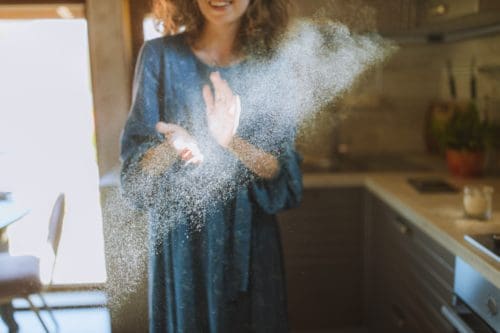Why Are My AC Vents So Dusty?

Why Are My AC Vents So Dusty?
If you notice that your air conditioning vents are dirty or dusty, it is essential to act as quickly as possible. Generally, dust and dirt cause severe problems with the efficiency of your HVAC system, leading to higher energy bills. According to this page, many factors may cause dust to collect on your AC vents.
Reasons Why The AC Vents are Dusty
Aside from cleaning or replacing your air filters, you may also want to check your vents and ducts to ensure that dust and dirt are not building up. If you have recently worked on your heating and air conditioning system or had some home renovations done, that may explain why you experience a lot of dust or dirt on your vents or around your home.
Dust is probably one of the most common things you will see in your vents. But once you look closer, you may notice other materials, including pet fur or hair. Dust can originate from the ductwork and heating vents themselves. Typically, the HVAC system filters out the dust and debris in your home, but it may not be enough to keep it away.
On the other hand, one of the reasons for your AC vents being so dusty is the room where the vents are placed. There could be dust, pet dander, or dirt all around the room and in the air. Your HVAC system will interact with these particles and cause dust to build up along the edges of the vent.
Moisture can also affect the vents. If the air is too dry, dust and dirt particles will attract to surfaces, such as vents. However, if there is excessive moisture, the sticky particles can linger in the flue.
How to Clean Your Air Conditioner Vents
Dusty or dirty air vents can negatively impact your indoor air quality and your HVAC’s lifespan. It is recommended you clean your air vents regularly, depending on how quickly they get dusty. When cleaning your ducts, you will need:
- Dish soap
- Vacuum with a hose
- Screwdriver
- A scrubbing brush
- Gloves
- A bucket
Steps to Cleaning Your Air Conditioner Vents
First, turn off your HVAC system, including your furnace and air conditioner. Remove the vent cover by hand or use a screwdriver. Put the cover to the side, then vacuum the ducts. Try to get as much dust and dirt as possible, but don't go too deep.
Use a duster to get the extra dust out of your vent covers. You can dust them off inside a garbage bag to avoid getting too much dust in the air and up your nose. Take some warm water, mix in some dish soap, and soak your vent covers for 10 or 15 minutes. By doing so, you will get rid of any grease or gunk, and you won't have to clean the ducts for a while.
Continue by drying your vents with a towel, and then put them back in. You may also need to replace the air filter, as you may be dealing with a clogged filter due to dusty vents. After you replace the air filter, turn the HVAC system back on.
Consequences of Dirty Vents
Dirty vents and dust can cause several problems, ranging from health problems to increased energy costs. The most common consequences are:
- Dust and dirt restrict the HVAC system heating and cooling and increase the run time, requiring more energy and fuel to heat and cool your home.
- Dust restricts airflow, so the system may not effectively circulate the air throughout your home.
- Long run times usually shorten the overall lifespan of the HVAC system.
- Dust may contain pet dander, dead skin, microorganism from cat litter, pollen, fungi, mold spores, or rodent feces. Once it contaminates your HVAC system, it can become home to mites, bacteria, or other pests.
- Dust and dirt will spread easier in a home with dirty vents or ducts. No matter how often you clean your house, dust can quickly flow from room to room and cover your furniture, accessories, or children's toys.
Finally, do not hesitate to consult a professional if you can no longer keep the dust and dirt under control. To keep yourself from getting sick, get in touch with an experienced air vent and duct cleaners while the dust is manageable. The sooner you call an expert, the better!
You May Also Like





